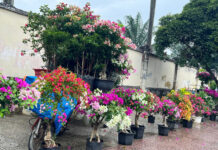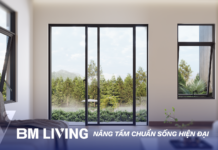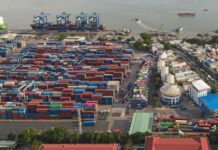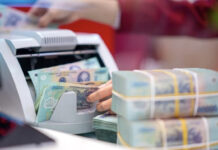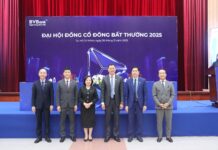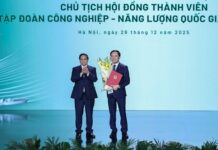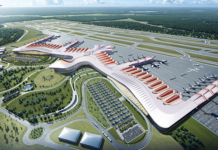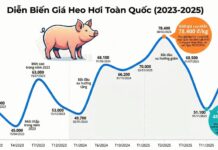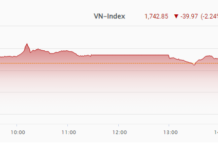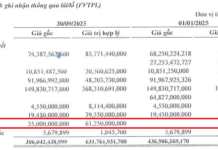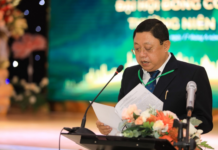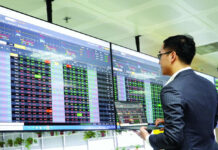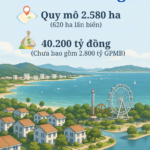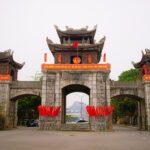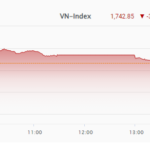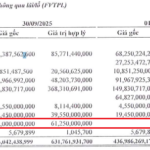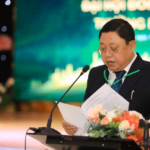## Vietnam’s Industrial Transformation: Embracing Sustainability and Innovation
Vietnam is entering a new era where industrial growth can no longer rely solely on expansion and resource consumption. Instead, the focus must shift to technology, productivity, and sustainable development.
In macroeconomic terms, this means transitioning from a resource-intensive model to one that emphasizes technology and innovation.
However, a critical question arises: How can businesses, especially in the manufacturing sector, maintain high growth rates while also meeting increasingly stringent environmental standards?
At a panel discussion titled “Harmonizing High Growth Targets with Sustainable Development” held by the Vietnam Economic Times on July 9, 2025, prominent companies such as Garment Corporation 10, Vietnam Steel Corporation (VnSteel), Panasonic, CNCTech, and VietCycle shared their challenges and pioneering efforts in embracing green transformation. They emphasized their commitment to sustainable development as a long-term strategy.

Ms. Nguyen Thi Phuong Thao, Executive Director of Garment Corporation 10, shared that their journey towards green transformation is driven not only by market pressures and Vietnam’s net-zero emissions pledge at COP26 but also by their intrinsic understanding of the need for change. “Failing to go green will hinder our ability to integrate internationally and remain competitive in global supply chains,” she emphasized. “It is also our responsibility as a business to care for the environment and society.”
In the steel industry, Mr. Pham Cong Thao, Vice President of VnSteel and Vice Chairman of the Vietnam Steel Association (VSA), acknowledged that the biggest pressure for transformation comes from export markets. Vietnam currently exports approximately 13 million tons of steel worldwide, with 40% going to developed countries such as the EU (27%) and the US (13%). With the EU introducing stringent regulations like the Carbon Border Adjustment Mechanism (CBAM) in 2026, businesses must meet these requirements to remain competitive. Otherwise, they will need to seek alternative markets.
Government environmental policies also play a significant role in pushing businesses towards green transformation. In the plastics industry, for example, Mr. Hoang Duc Vuong, Chairman of VietCycle and Vice Chairman of the Vietnam Plastics Association (VPA), explained that exports to Europe now require 30% recycled plastic content, increasing to 35% by 2028. Moreover, plastic bags must contain 70% recycled content. As a result, the plastics industry has no choice but to adapt, invest in new technologies, and embrace recycled materials.
Faced with these pressures, many businesses have taken the initiative to pioneer green transformation. Ms. Nguyen Thi Phuong Thao shared that Garment Corporation 10 has been on this path for over five years. They have adopted sustainable raw materials, including recycled and organic cotton, and invested in rooftop solar panels that generate millions of kWh at their large facilities. Additionally, they have transitioned from coal-fired boilers to biomass boilers, significantly reducing CO2 emissions.
Green transformation is no longer an option but a necessity for survival and growth in the new global context. However, businesses cannot do it alone. The industrial production sector needs a supportive ecosystem, including consistent policies, green financing, suitable technologies, and collaboration among stakeholders.
Additionally, there is a need to foster an innovative ecosystem that connects businesses with research institutes and universities to drive sustainable development further.
The Two $3 Billion Coastal Metropolis Projects: What Makes Them So Special?
Introducing our two visionary projects: the Tu Bong New Coastal City and the Dam Mon New Coastal City. With a sprawling 620-hectare and 82-hectare reclamation respectively, these transformative developments are set to redefine the urban landscape and unlock the vast potential of Vietnam’s stunning coastline.
The Youngest Municipality in Vietnam: Unveiling the Country’s First Dual Heritage Site in Southeast Asia
Hoa Lu is an extraordinary city, boasting the Trang An Landscape Complex – a UNESCO World Heritage Site and a unique ‘double’ heritage site in Vietnam and Southeast Asia.
The Critical Bottleneck: Indochina Capital Chairman’s Emphatic Message on Unlocking Vietnam’s Real Estate Market Potential
Peter Ryder, Executive Chairman of Indochina Capital and Board Member of Indochina Kajima, firmly believes that infrastructure is the foundation for Vietnam’s future growth, both in the real estate sector and the economy as a whole. He emphasizes that infrastructure is also the most critical bottleneck currently restraining the industry’s development.



